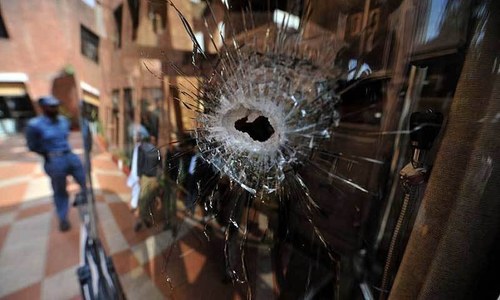In the early 1930s, three young German academics, Theodore Adorno, Max Horrkheimer and Herbet Marcuse, formed an intellectual clique that came to be known as the Frankfurt School.
Based in the German city of Frankfurt, the three men developed a way of studying Marxism (in Europe) with the aid of Freudian psychology and, in the process, came up with an intellectual and analytical tool called ‘critical theory’.
With the rise of Nazism in Germany, the three men moved to the United States and set themselves up at New York’s prestigious Columbia University. Here they applied critical theory to the emergence of fascism in Europe, and concluded that fascism was the outcome and by-product of ‘advanced capitalism’.
Today’s young parents should be prepared for some awkward questions from their children when they grow up
Some 30 years after the three men had first published their study of the rise of fascism in Europe, their thesis were enthusiastically picked up by sections of young middle-class Germans, many of whom were not even born when the Frankfurt School and critical theory were being formed.
Suddenly, the idea that fascism was the outcome of advanced capitalism became all the rage among a large number of university and college students in West Berlin and Frankfurt.
But why did it take almost 30 years for German youth to embrace the idea? Journalist and author Hans Kundani in his excellent book, Utopia or Auschwitz, informs us that many Germans who were born during Nazi rule in Germany (1933-45), entered their teens and 20s in the 1950s.
By the late 1950s and early 1960s, university students associated with the left-wing German student outfit, the SDS, had begun to question the silence adopted (on Nazi rule) by their parents and the German state after the collapse of Nazism in 1945.
Articles began to emerge in radical youth magazines, and treatises authored by the intellectual wing of the SDS, denounced their parents’ generation for remaining quiet or even supporting the ‘murderous rise’ of Nazism in Germany.
Why were you quiet even after thousands of Pakistanis were slaughtered by extremists? What was the state waiting for before finally launching a military operation against the extremists? Were you looking the other way when schoolgirls were being shot in the face and then called agents?
They coined the term the ‘Auschwitz generation’ for their parents and accused them of destroying Germany by facilitating the emergence of Nazism and then trying to repress the gruesome memory of it after its collapse.
By 1967, membership of the SDS and other progressive youth outfits witnessed a threefold rise and many of the young intellectuals and leaders associated with these organisations began to apply the theoretical conclusions of the Frankfurt School to the prevailing situation in Germany.
According to the students, their parents had facilitated the rise of Nazism in the 1930s and had looked the other way when the Nazi regime was committing violent crimes against those Germans who had refused to submit to the dictates of the Nazi regime.
They added that even after the collapse of Nazism (in 1945), Germany had rebuilt itself with the help of advanced capitalism that was being facilitated by their parents’ generation, that by keeping the memory of Nazism repressed, was now forming an authoritarian state run by former Nazis and their sympathisers.
The rage associated with this sentiment finally exploded in 1967 and the student movement turned violent. The violence continued across the 1970s until the German state finally decided to confront the country’s violent past, instead of suppressing it.
Now imagine what might happen when Pakistani children born in the early and mid-2000s, enter their late teens and 20s. Hopefully, by then Pakistan would be a largely extremism-free country, but will that be enough?
Today’s young parents should indeed be prepared to be asked some awkward questions by their children when they grow up. Why were you quiet even after thousands of Pakistanis were slaughtered by extremists? What was the state waiting for before finally launching a military operation against the extremists? Were you looking the other way when schoolgirls were being shot in the face and then called agents? How did you react when students were being cut down at schools and universities? Why did you allow such a situation to exist? Why don’t you talk about it? Are you ashamed of it, or did you actually defend what the extremists were doing?
Pakistani children today are living in extremely testing times. Their memory of such a time is bound to finally make them ask some pointed and difficult questions from their parents and the state of Pakistan when they grow up. So be ready, and more so, be honest.
Published in Dawn, Sunday Magazine, February 7th, 2016














































